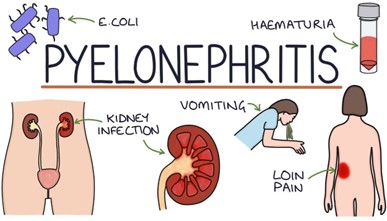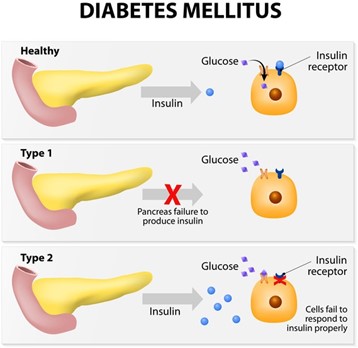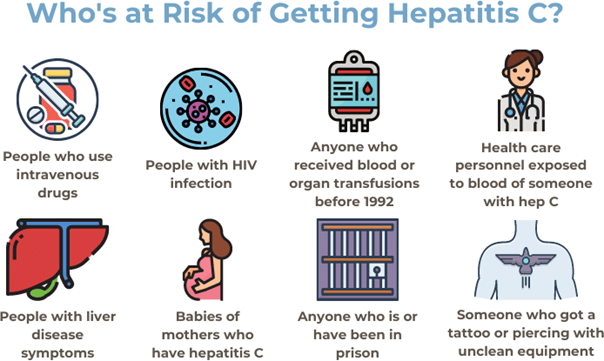Which finding by the nurse will be most helpful in determining whether a 67- yr-old patient with benign prostatic hyperplasia has an upper urinary tract infection (pyelonephritis)?
Costovertebral tenderness
Foul-smelling urine
Bladder distention
Suprapubic discomfort
The Correct Answer is A
The most helpful finding by the nurse in determining whether a 67-yr-old patient with benign prostatic hyperplasia has an upper urinary tract infection (pyelonephritis) would be
**costovertebral tenderness**⁴. This is because costovertebral tenderness is a common symptom of pyelonephritis⁵. Pyelonephritis is an infection of the upper urinary tract that can cause fever, chills, flank pain, nausea, vomiting, and costovertebral tenderness⁵. Foul-smelling urine and bladder distention are not specific symptoms of pyelonephritis⁵. Suprapubic discomfort can be a symptom of lower urinary tract infection⁵.

Nursing Test Bank
Naxlex Comprehensive Predictor Exams
Related Questions
Correct Answer is ["A","D","E"]
Explanation
Option A indicates that the client understands the timing of glyburide administration, which is typically taken with the first bite of a meal to aid in glucose control.
Option d indicates that the client understands the importance of continuing antidiabetic medications even when they are sick. Skipping doses during illness can lead to uncontrolled blood glucose levels.
Option e indicates that the client understands the importance of foot care in preventing complications related to peripheral neuropathy, such as diabetic foot ulcers.
Option b is incorrect because patients with peripheral neuropathy should not walk barefoot, as they may not feel injuries to their feet, which can lead to diabetic foot ulcers and other complications.
Option c is incorrect because antidiabetic medications do not allow patients to eat whatever they desire. Patients with diabetes need to follow a healthy diet and exercise plan to manage their blood glucose levels effectively.

Correct Answer is B
Explanation
Intravenous drug use is a significant risk factor for hepatitis C transmission. The other options are not necessarily related to hepatitis C transmission. However, having a blood transfusion before 1992 or receiving an organ transplant before 1992, having a history of receiving blood products or clotting factor concentrates before 1987, and having been born to a mother with hepatitis C are also considered significant risk factors for hepatitis C transmission.

Whether you are a student looking to ace your exams or a practicing nurse seeking to enhance your expertise , our nursing education contents will empower you with the confidence and competence to make a difference in the lives of patients and become a respected leader in the healthcare field.
Visit Naxlex, invest in your future and unlock endless possibilities with our unparalleled nursing education contents today
Report Wrong Answer on the Current Question
Do you disagree with the answer? If yes, what is your expected answer? Explain.
Kindly be descriptive with the issue you are facing.
